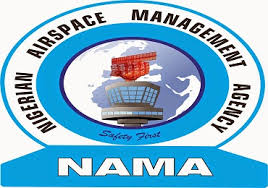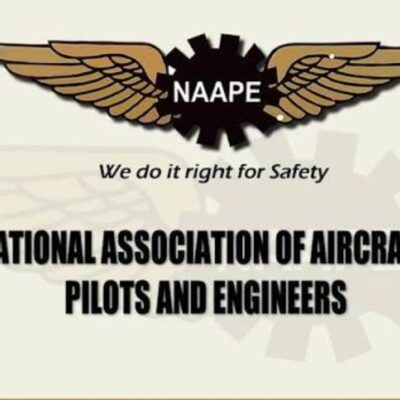
BY OLAPEJU OLUBI
As financial constraints weigh heavily on its operations, the Nigerian Airspace Management Agency (NAMA) has announced plans to reintroduce the suspended $300 landing fee for helicopter operators.
The decision has reignited strong opposition from industry stakeholders as many query the rationale behind the planned reintroduction.
While NAMA defends the fee as a necessary measure to sustain air navigation services and safe travels generally, critics argue that its legal basis and implementation remain questionable, setting the stage for renewed disputes in Nigeria’s aviation sector.
Speaking at the recent 53rd Annual General Meeting (AGM) of the Nigerian Air Traffic Controllers’ Association (NATCA) in Kano, Mr. Tayo John, Director of Air Traffic Services at NAMA, who hinted of the planned reintroduction stated:
“In the next few weeks, we will recommence the collection of $300 landing fee from helicopter operators. We started earlier, but the government directed us to suspend it then due to some issues in the country, but this time around, we will resume the collection.”
Presenting a paper titled ‘Financial Constraints Affecting Nigeria’s Air Navigation Provision: Impact and Mitigation Strategies,’ John detailed the significant financial challenges faced by NAMA. These include the high costs of providing navigation aids, maintaining Air Traffic Management (ATM) equipment and supporting the agency’s workforce.
He also highlighted that deductions, such as 50% of NAMA’s Internally Generated Revenue (IGR) into the federal purse and 10% of IATA remittance to the Nigerian Meteorological Agency (NiMet), further strain the agency’s finances.
According to John: “These constraints hinder our ability to modernise equipment, maintain infrastructure, and ensure consistent training for our personnel.”
The financial issues reportedly limit NAMA’s ability to meet its mandate of providing safe, reliable and efficient air navigation services. Other constraints include budgetary limitations, operational costs, and dependency on foreign exchange.
The $300 landing fee, initially introduced through NAEBI Dynamic Concept, hired to oversee its collection, has been met with resistance.
Industry stakeholders, particularly the Airline Operators of Nigeria (AON), criticised the lack of a legal framework and justification for the fee.
AON argued that NAEBI does not provide any tangible service to helicopter operators, apart from helipad certification for which operators are already charged. The association insisted that NAMA’s responsibilities under the NAMA Act 2022 already cover navigation services for take-offs and landings, making the fee redundant.
However, in May 2024, Festus Keyamo, Minister of Aviation and Aerospace Development, suspended the fee’s collection following appeals from stakeholders.
He explained that a review committee, comprising representatives from the ministry, NAMA, AON, International Oil Companies (IOCs), and NAEBI, was tasked to examine the matter.
A statement issued by the ministry at the time read:
“Following a meeting with the AON executive on the issue bordering on helicopter landing levies collection at aerodromes, helipads, airstrips, and others, Minister of Aviation and Aerospace Development, Festus Keyamo, has temporarily suspended the enforcement granted Messrs.
NAEBI Dynamic Concept Ltd, by the Federal Government, as consultants to collect such levies.
The suspension is with effect from 30th May, 2024. This, the minister said, is as a result of clamor for review by some stakeholders in the industry.”
The review committee was directed to submit its findings by June 2024, though no further updates on its conclusions have been made public.
Ademola Adedayo, another aviation expert, raised concerns about the implications of financial constraints and political interference on safety in air navigation services.
In his presentation titled “Safety Implications of Fiscal Constraints and Political Interference on the Recruitment, Suitable Training and Retraining of Air Traffic Controllers,” Adedayo warned:
“The safety implication of fiscal constraint and political interference in the recruitment, training, and retraining of ATCs are serious and far-reaching.
Understaffing, inadequate training, lack of experienced personnel, outdated systems, and low morale all increase the risk of errors in air traffic control operations, which can lead to safety incidents or accidents.”
He emphasised the need to shield air traffic controllers (ATCs) from political pressures, advocating for legal protections and adherence to international best practices to safeguard recruitment, training, and modernisation efforts.
As NAMA prepares to reintroduce the $300 landing fee, questions remain about its implementation and the potential backlash from stakeholders.
While the agency insists the fee is necessary to address its financial woes, industry players argue for transparency and accountability in its collection.
Observers note that the delicate balance between financial sustainability and stakeholder satisfaction continues to define the evolving narrative in Nigeria’s aviation sector.
Olapeju is a journalist and aviation reporter.





